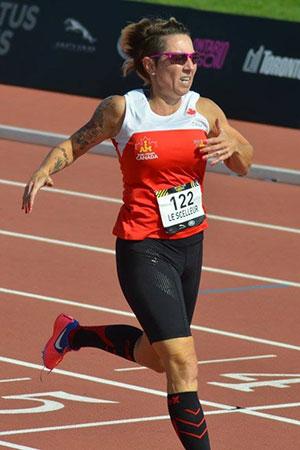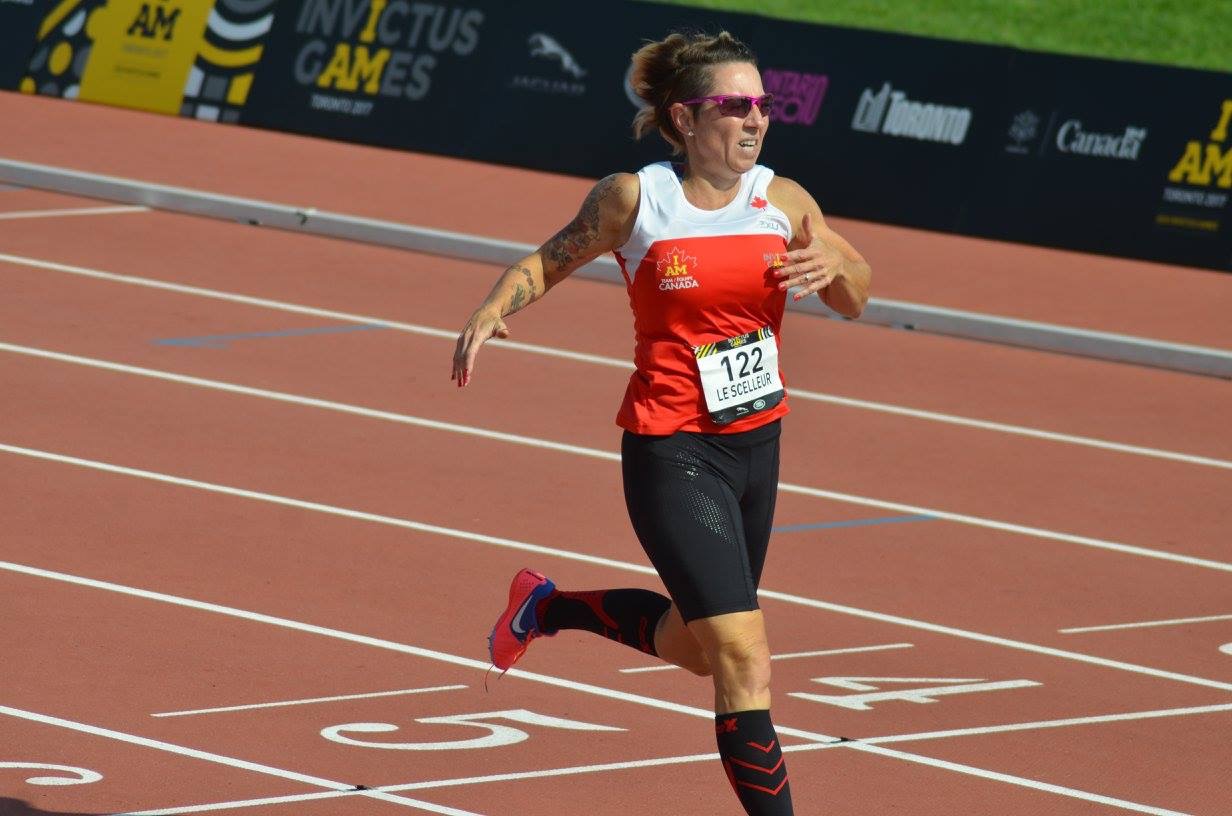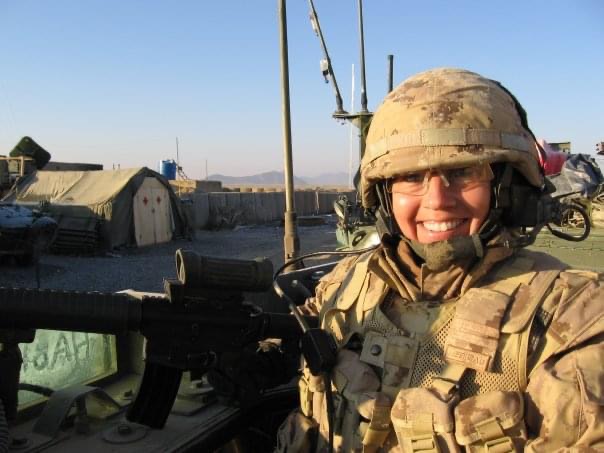
Joined
1990
Postings
- Montreal, QC
Key operational experiences
- Bosnia: 1999, 2002
- Afghanistan: 2007
In 1990, when she was just 18, Hélène Le Scelleur became a reservist in the Canadian Armed Forces (CAF). Her parents had their doubts about her being in it for the long haul. She surprised them by quickly climbing the military ranks, going from non-commissioned officer to officer, reaching the rank of captain in 2007.
During the first nine years of her career in Montreal, Le Scelleur was employed on a series of full-time Reserve contracts, in the infantry and in administration. She was among the first cohorts of women employed in the combat arms, positions that had previously been closed to them. With the knowledge that she was committed to a long career in the military, she transferred to the Regular Force in 1999.
In the mid-1990s, the UN peace mission in the Balkans fell under NATO command. Bosnia would be Le Scelleur’s first overseas mission. At the time, Canada was the first implementation force, with the goal of stabilizing the region after the civil war. “The rules of engagement were much broader. We had a lot of flexibility in our response capability.” She went back a second time in 2002. During that mission, she decided to set her sights on a higher leadership position by becoming an officer.
In 2007, when Canada was in its sixth year in Afghanistan, Le Scelleur was deployed there. She was the second in command of a medical company, in charge of planning medical support for combat teams and coordinating combat zone evacuations to the Kandahar military hospital. Transportation during those evacuations was not without danger. The Canadians were already very familiar with the random nature of improvised explosive device attacks on military convoys.

Captain (Ret’d) Hélène Le Scelleur
“It was a moonless night; you couldn’t see anything at all. There were lights blinking on the horizon and where we were. We didn’t know if it was a signal, if another attack was about to happen.”
While she was travelling in a convoy, there was an explosion and she lost consciousness. She woke up moments later and heard her colleagues calling for medical assistance. The driver of her vehicle was injured, and so were a number of other soldiers. They spent nearly four hellish hours awaiting assistance. Meanwhile, there was a real fear of a second explosion. “It was a moonless night; you couldn’t see anything at all. There were blinking lights on the horizon and where we were. We didn’t know if it was a signal, if another attack was about to happen.”
Le Scelleur lost two comrades under her command on that mission. She brought the trauma and the feeling of guilt back with her to Canada. Shortly thereafter, she started experiencing symptoms of post-traumatic stress disorder (PTSD) and started therapy.
At the same time, she landed a new deployment opportunity as aide-de-camp to the Governor General of the time, Michaëlle Jean. Le Scelleur believed at first that the new challenge would help her overcome her psychological injuries. Instead, she started abusing alcohol and having suicidal thoughts. Thanks to the help of her eldest son and a return to studies, she managed to make it through those difficult times.

Hélène in Afghanistan, in a convoy headed to Spin Boldak.
In 2016, after 26 years of service, she was released from the CAF because of her PTSD. The following year, she participated in the Invictus Games in Toronto as a member of Team Canada. Her experience training for the games gave her the positive boost necessary to take back control of her life.
“For sure, the structured format of studies helped. I was also volunteering at the time, helping injured veterans, and that’s the other part of why I’m better today.”
Le Scelleur also started a master’s degree in social work, which she completed just before her release. She partially attributes her successful recovery to the discipline required to pursue further education: “For sure, the structured format of studies helped. I was also volunteering at the time, helping injured veterans, and that’s the other part of why I’m better today.” She is currently completing her doctorate, conducting research on CAF members’ experiences with identity transition as they return to civilian life.
If you a Veteran, family member or caregiver in need of mental health support, the VAC Assistance Service is available to you 24/7, 365 days a year at no cost. Call "1-800-268-7708 to speak to a mental health professional right now.

